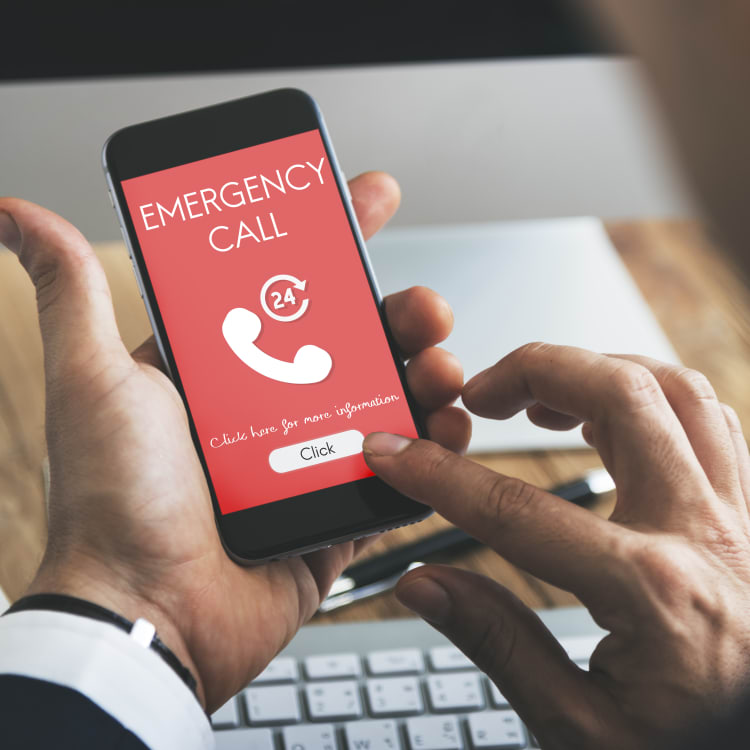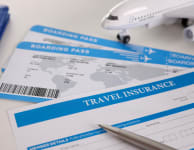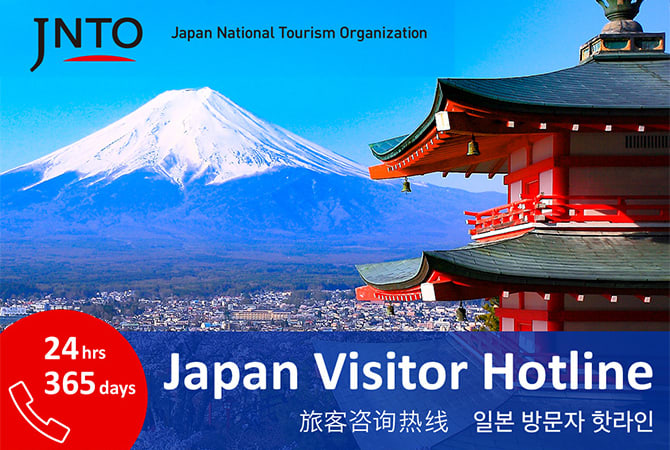

Staying Safe in Japan
What to do in an emergency
While Japan sits at the top of many general safety rankings, travelers to the country still need to be aware of potential dangers and how best to react to them. Japan is prone to natural disasters such as typhoons, earthquakes, tsunamis and volcanic eruptions. While most are small in scale, it's important to be prepared.
Is Japan safe?
In short, Japan is very safe and the crime rate is quite low. Like any other destination, though, travelers should be aware of their surroundings and know what to do in case something does happen.
There is always a possibility, however unlikely, that you might fall victim to a form of petty crime during your stay in Japan. If you need help, head to a local koban—the small police boxes dotted throughout Japanese neighborhoods. If you don't know where one is, just ask. If you should find yourself without your credit cards, airline tickets or passports due to theft, contact the issuers to arrange for replacements. Keep a list of relevant numbers.
If you need to have your passport reissued or receive an insurance payment due to theft, loss, traffic or other incident, a police report will be required. A local police station can create this for you. Visit your nearest koban, and if you are staying at a hotel, ask the front desk to give you a hand.
Your embassy is also a useful point of contact in case of any emergencies, so make a note of the location and relevant contact details before arriving in Japan. You will need to get in touch with your embassy if you need a replacement passport. Just in case, make a couple of copies of your passport and keep one with you and leave one at home. The Tokyo Metropolitan Police Department website tells you everything you need to know about staying safe during your time in Japan, from reporting a crime or accident to traffic safety and natural disasters.
Earthquakes in Japan
Although they should not deter you from visiting Japan, natural disasters such as earthquakes do occur. Compared to other countries, earthquakes are common in Japan, so it's best to be prepared.
Earthquakes can occur at any time and strike with little or no warning. Japan's location on shifting tectonic plates means that the country is almost always shaking—it's just that many of the quakes go unnoticed. If you are inside during a larger earthquake, remember to stay calm and follow any instructions staff might give. When you check into a hotel, double-check where the evacuation routes are so you know where to go in an emergency. Fire is the most dangerous secondary disaster, so extinguish any naked flames as quickly as possible during an earthquake. Make sure to keep your phone and devices fully charged. These can be indispensable in the event of any emergency. If you are by the coast when a large earthquake strikes, head for higher ground in case of a tsunami.
If you encounter a significant natural disaster like a typhoon, earthquake, tsunami, or volcanic eruption while in Japan, you can use the following websites and apps for information:
・Japan Safe Travel Information (Web)
・Safety Tips (APP Download)
・NHK WORLD-JAPAN (Web)
・NHK WORLD-JAPAN (APP Download)
Useful phone numbers
In addition to the emergency number of 110, the Metropolitan Police in Tokyo has an English helpline available 24 hours a day, 365 days a year.—Dial 03-3501-0110 for this service. For mental health support, Tokyo English Life Line (TELL) has a hotline open on 03-5774-0992 Monday through Thursday 9 a.m. to 11 p.m. and Friday through Sunday 9 a.m. to 2 a.m.
The JNTO Tourist Information Center in Tokyo is a phone call away at 03-3201-3331, every day 9 a.m. to 5 p.m. Tourist Information Centers (TIC) also has two locations at Narita International Airport , and one at Kansai International Airport in Osaka .
Japan Tourism Agency's "Guide for when you are feeling ill " provides medical institutions information, search methods, and guidelines. The website is available in English, Chinese, and Korean.
The AMDA International Medical Information Center provides Medical Questionnaire in Multilanguage and other information.
Travel insurance
Sign up for travel insurance with adequate coverage before your departure so that you can enjoy your stay in Japan without any worries.





































































